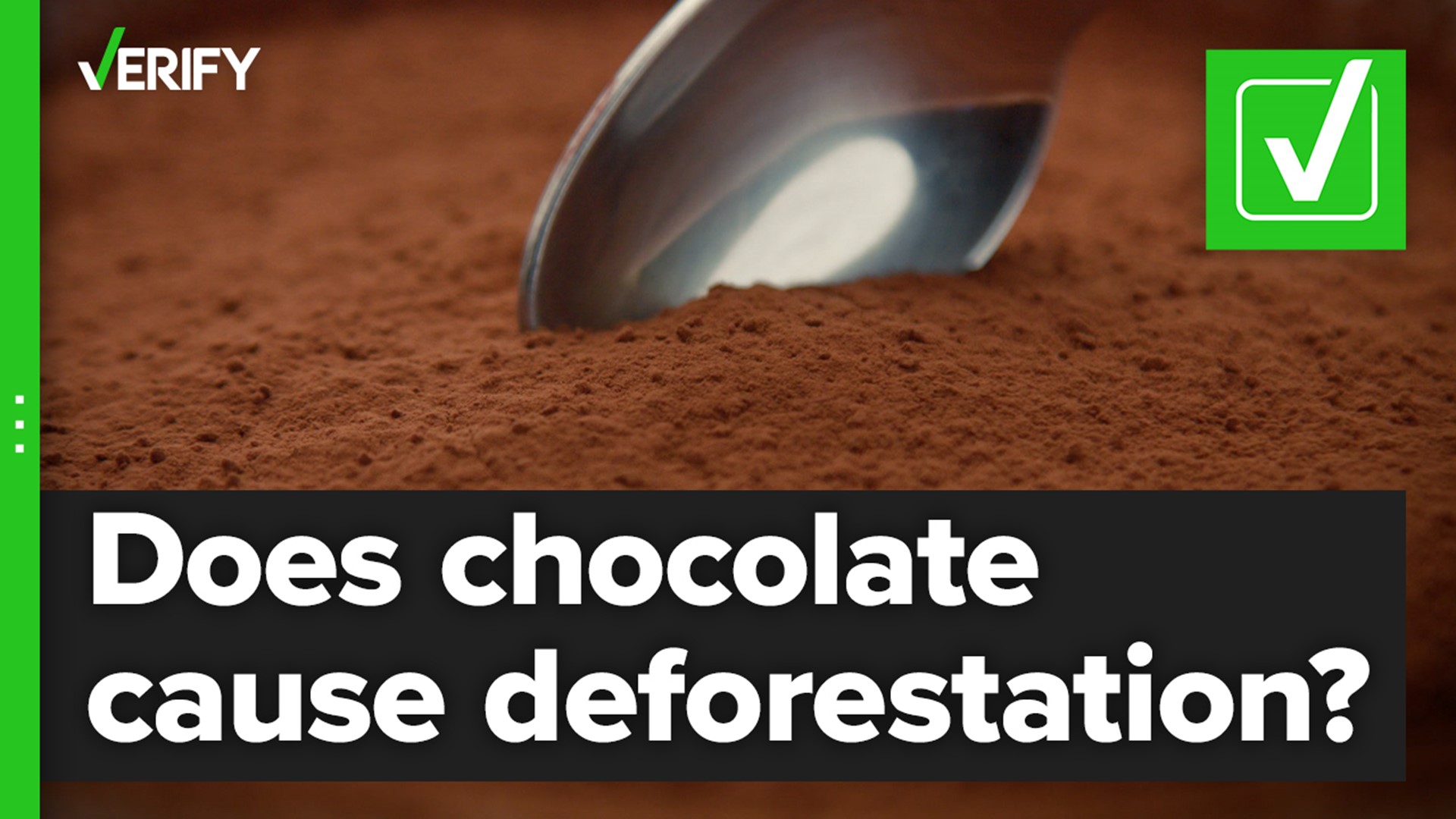The United Nations is holding a summit in Glasgow, Scotland, to discuss the world’s top climate issues. President Joe Biden and more than 100 other world leaders are at the conference – called COP26.
One of the climate issues being analyzed at COP26 is deforestation. During the conference, more than 100 countries agreed to end and reverse deforestation by 2030.
According to a 2020 report from the U.N.’s Food and Agriculture Organization, agricultural expansion is the main driver of deforestation.
“Large-scale commercial agriculture (primarily cattle ranching and cultivation of soya bean and oil palm) accounted for 40 percent of tropical deforestation between 2000 and 2010, and local subsistence agriculture for another 33 percent,” the U.N. agency said.
Some social media posts have suggested the production of chocolate is also contributing to deforestation. They claim choosing certain brands of chocolate could help make a difference because cocoa farmers often cut down all other types of trees to keep up with growing demand.
THE QUESTION
Is chocolate production a cause of deforestation?
THE SOURCES
- Ethan Budiansky, director of environment at World Cocoa Foundation
- World Bank Group
- Nestle
- Mars
- Hershey
THE ANSWER
Yes, chocolate production is a cause of deforestation. But organizations say consumers can help by opting for sustainably produced chocolate.
WHAT WE FOUND
The concern about deforestation and chocolate production begins with where and how cocoa is grown.
Cocoa plants thrive near the equator. The World Cocoa Foundation, an international nonprofit that advocates for the sustainability of cocoa, estimates Côte d’Ivoire and Ghana produce two-thirds of the world’s supply of cocoa.
The World Cocoa Foundation estimates Côte d’Ivoire lost 25% of its primary forest between 2002 and 2019. The group estimates Ghana lost 8% of its primary forest during that time.
“Cocoa has been a major driver of that deforestation,” said Ethan Budiansky, director of environment at World Cocoa Foundation.
That’s because, to keep up with demand and expand cocoa crops, farmers often cut down all other types of trees, according to the World Bank Group.
“The trajectory of deforestation due to cocoa production has remained upward primarily because of rising demand for chocolate, decreasing production capacity from aging cocoa trees, lack of good agricultural practices and the shrinking suitable land area due to climate change,” a 2017 report said. “These factors create further incentive to convert forests to farmlands for cocoa, which threatens remaining forested and protected areas.”
The issue of cocoa production and deforestation isn’t new. Environmentalists have long pressured chocolate companies to buy sustainable cocoa and pay farmers better, so they’re incentivized to do less damage to forests.
Related story: Verifying or debunking 10 claims about our climate
In 2017, the Cocoa and Forests Initiative was launched with the goal of ending deforestation. The initiative is a partnership between the industry, governments, the World Cocoa Foundation and other stakeholders. It started to address the issue of restoring forest areas by planting 10 million new trees – promoting more sustainable production and increasing traceability.
“A key component of the cocoa and forest initiative is, on the one hand, promoting the reforestation of degraded areas,” said Budiansky. “Another key component of that is the promotion of more sustainable cocoa production growing more cocoa on less land.”
Some of the biggest chocolate companies, including Nestle, Mars and Hersey, are part of the Cocoa and Forests Initiative and have set goals to purchase more sustainable cocoa. Nestle and Mars committed to buying only deforestation-free cocoa by 2025. Hershey plans to eliminate deforestation from its entire supply chain by 2030.
Budiansky said it’s important that consumers don’t eliminate chocolate altogether from their lives, as that will lead to farmer poverty, one of the root causes of deforestation, but instead seek chocolate that was sustainably produced. Two nonprofits, Fairtrade America and Rainforest Alliance, certify chocolate products that meet their sustainability standards.
More from VERIFY: Climate change and COP26

